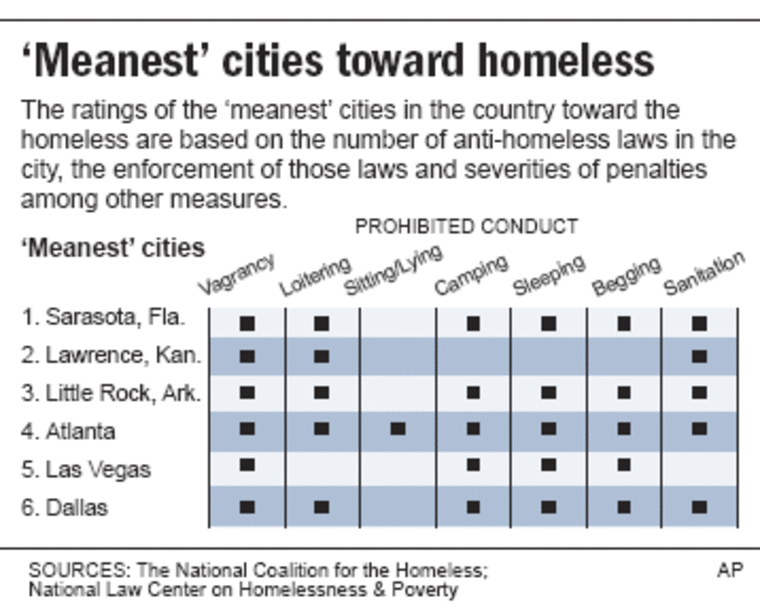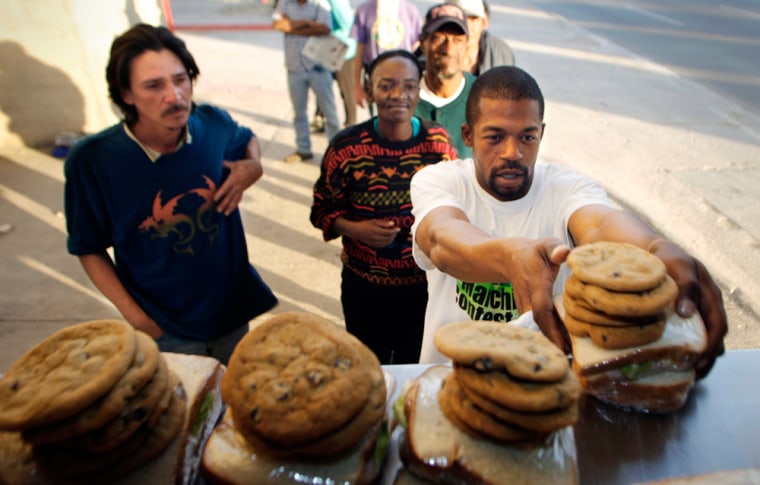Panhandling banned. Shopping carts prohibited on city streets. The distribution of food to the homeless restricted to designated areas.
With a series of ordinances governing its growing homeless population, Dallas is gaining a reputation as a city uncharitable toward some of its neediest citizens.
The National Coalition for the Homeless and the National Law Center on Homelessness and Poverty recently ranked Dallas sixth among the top 20 “meanest” cities in the country. No. 1 was Sarasota, Fla.
Dallas officials say they are trying to steer the homeless toward help and make the streets a little safer for them. But advocates for the estimated 9,000 homeless people in Dallas say the city is pursuing a harsh and pitiless policy.
“That’s like a form of social Darwinism, if you cut off food to force people to get help, and it really doesn’t work that way,” said Michael Stoops, acting executive director of the National Coalition for the Homeless.
Last month, Dallas began enforcing an ordinance that prohibits charities from distributing free food to the homeless except at city-approved locations and only after volunteers undergo food safety training, provided free by the city. Violations of the law, enforced by city food inspectors, are punishable by fines up to $2,000.
“It’s OK to sell someone a sandwich, but if I hand a sandwich to a homeless person, I’m committing a crime,” said Charles Wellhausen, a volunteer for the Sathya Sai Baba Center.
The ordinance was passed last summer. Over the past few years, Dallas has also banned begging and prohibited possession of a shopping cart away from the cart owner’s property.
Mayor Laura Miller said that the city is actually trying to help the homeless, whose population doubled last year and is expected to grow again as displaced Hurricane Katrina evacuees lose their free federal housing this month.

She noted that voters last fall approved construction of a $23.8 million homeless shelter to replace an overcrowded one. The 24-hour shelter would provide beds, restrooms, showers, job training and mental health treatment and is set for completion in 2008.
Boadicea White, the city’s interim manager for homeless services, said the feeding ordinance was designed to fight litter and food-borne illnesses and steer the homeless to places where they could receive a variety of services, not just meals.
“We’re definitely not trying to starve anyone and not trying to keep anyone from services,” she said. “We’re trying to do just the opposite.”
James Waghorne, a 48-year-old advocate for the homeless, said the new ordinance will lead more people to eat out of the trash. He said he received food from a charitable organization during the two years he lived on the streets.
“It really wasn’t so much about the food, but that someone still cared,” he said.
